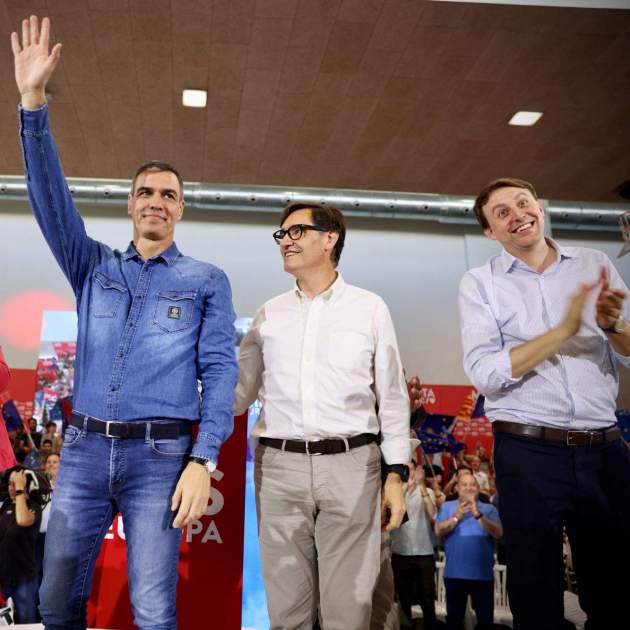Another landslide victory at the polls for the PSC in Catalona. With the European elections of June 9th, Salvador Illa's Catalan Socialist Party completes the electoral cycle of the last year by winning all four possible elections: first were the municipal elections on May 28th, 2023, then the Spanish general election of July 23th, 2023, also the Catalan parliamentary election four weeks ago and, now, the European elections. This period of triumphs, in fact, goes back to February 14th, 2021. This year, the Socialist list, with Javi López as PSC leader, won in Catalonia with 30.6% of the vote, and an increase of eight points compared to the last European elections, when they came second. The turnout fell drastically in relation to 2019: only 43.53% of eligible Catalan voters went to the polls, a drop of 17 percent from the 2019 elections - which had the advantage of coinciding with municipal elections and featured the candidacy of Carles Puigdemont - although this year's turnout was very similar to that of 2014.
🔴 Full results of the European elections across the Spanish state
🔴 Who are the candidates that Catalans voted to send to the European Parliament?
Breaking down the Catalan result into the four demarcations, the same pattern as in the Catalan election was repeated: in Barcelona and Tarragona, first place went to the PSC, with 32.1% and 28.9%, respectively. In the case of Girona and Lleida, Together for Catalonia (Junts) was the leading party, with 32.1% and 27.4%.
Junts, once again ahead in the independentist bloc
In the rivalry between the pro-independence parties, Junts once again prevailed over the Catalan Republican Left (ERC). The list led by Toni Comín obtained 18% of the votes, a ten-point drop compared to 2019, when Carles Puigdemont led the Junts candidacy for the European Parliament. Meanwhile, the ERC ticket led by Diana Riba (part of the Ara Repúbliques coalition) came third in Catalonia, with 14.8% of the votes, a drop of six and a half points in relation to 2019. With this result, the party has once again fallen behind Junts, as also occurred at the Catalan election on May 12th.
Beyond that, the fight for third place in Catalonia was also very tight between ERC and the People's Party. Finally, the PP finished in fourth place (13.8% of votes), which represents an increase of eight percent compared to 2019.
Looking at overall pro-independence strength, in these elections the sum of Junts and ERC fell massively. Five years ago, they exceeded 1.7 million votes at the European elections, but in 2024 the total did not reach 800,000: a decline from a combined percentage of 49.84% of the total in 2019 to 32.84% today.
Podemos finishes ahead of Comuns Sumar
Further down the results, far-right Vox remains strong in Catalonia and is consolidating as the fifth largest party. The list led by Jorge Buxadé obtained 6.1% of the votes, 4% more than in 2019. As for the fight on the left between Comuns Sumar and Podemos, the original anti-austerity party triumphed: 4.6% of Catalan voters supported Irene Montero's Podemos list, to 4.3% for Sumar, with Jaume Asens as the leading Comuns candidate at number two on the list. And the platform Se Acabó La Fiesta (SALF, "The Party is Over"), led by far-right populist Alvise Pérez took 2.8% of votes in Catalonia, a percentage very similar to what it obtained at Spanish level. Finally, Ciudadanos did not even reach 0.6% of votes.
In relation to the Catalan elections, held 28 days ago, those who have increased their percentage of votes are the Socialists (+2.6 points), the PP (+2.8) and also ERC (+1.2 points); while the rest of the parties have lost momentum compared to May 12th: Junts has fallen 3.6 points; Vox almost two points and Comuns Sumar's support has shrunk by 1.5%.
